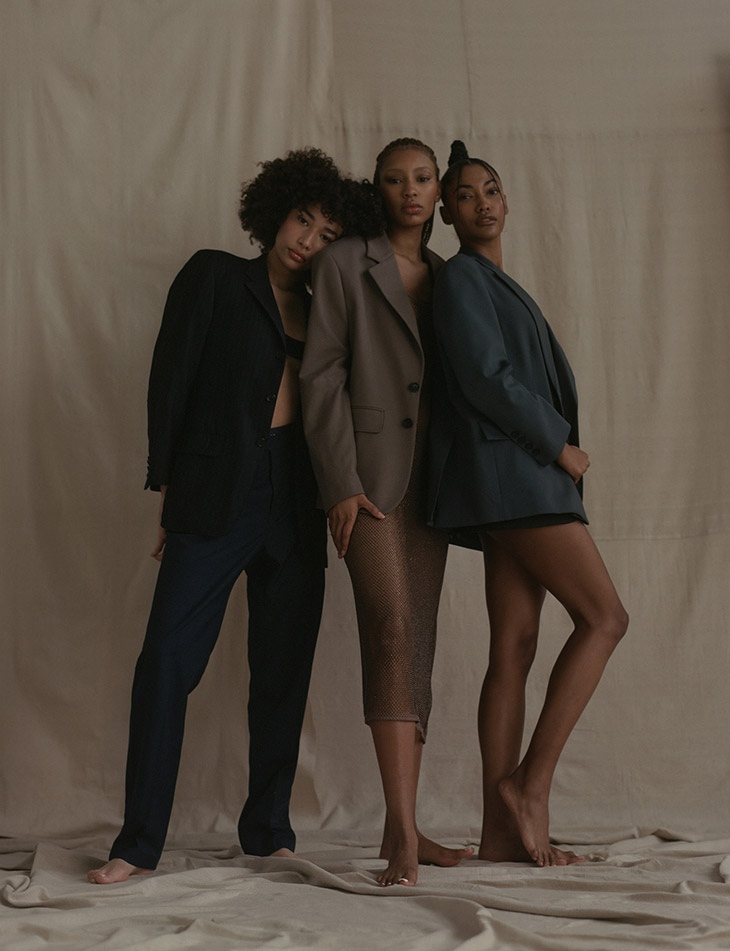
Fashion trends move quickly. One minute it’s oversized denim, and the next it’s sleek, minimal basics. Behind every trend, there’s a machine that makes it all happen. That machine is the clothing manufacturing industry. And right now, it’s split between two different worlds: fast fashion and custom production.
Each approach has its own strengths. Some shoppers want cheap and trendy. Others want unique, long-lasting pieces. Businesses have to choose which side to lean toward. Many are turning to ethical clothing manufacturers who promise more transparency and care. But what does that really mean? And what are the trade-offs?
What Fast Fashion Is Really About
Fast fashion is built for speed. It gets styles from runway to store in record time. That’s the whole point. The clothes are made quickly and in large amounts. They hit the shelves just in time to catch a trend. Once the trend dies, the clothes disappear.
This process relies on big factories. Most of them are overseas. The goal is to cut costs. Materials are often synthetic. Labor is cheap. Production schedules are tight. And quality can take a backseat.
That’s not always a bad thing. Some brands use fast fashion to test designs. They get real-world feedback before committing to a bigger batch. But for the most part, the goal is to make clothes fast and sell them fast.
The Custom Production Difference
Custom production takes a slower route. It focuses on small batches and careful details. Sometimes it means made-to-order. Other times, it’s just more limited in size and style. Either way, the goal is to make something better.
These pieces usually come from smaller factories or even local workshops. There’s more control over materials. Quality checks happen more often. Workers often have better conditions. That’s why many ethical clothing manufacturers fall under this model.
Custom production allows for creativity. Designers get more freedom. Customers get something unique. And there’s less waste. You’re not making thousands of items that may never sell.
Why Cost Isn’t Always the Same as Value
At first glance, fast fashion is cheaper. You can grab a t-shirt for five bucks. But look closer. That shirt might fall apart after a few washes. You’ll have to replace it. Over time, that adds up.
Custom pieces cost more upfront. But they last longer. The stitching holds. The fabric doesn’t pill. The fit is better. That means fewer replacements. So in the long run, you may save money – or at least get more for what you spend.
Also, there’s a hidden cost to fast fashion. Cheap clothes can come from unfair labor practices. They can damage the environment. Those costs don’t show up on your receipt. But they’re still very real.
Sustainability Is a Big Deal Now
So many of us are becoming more conscious about the origins of our clothing. We want to know who made them. We want to know how the fabric was dyed. And we want to know what happens to the leftovers.
Fast fashion struggles here. It creates a lot of waste. Tons of unsold clothes end up in landfills. Factories can pollute rivers and use too much water. Some brands are trying to fix that, but the model makes it hard.
Custom production is usually better for the planet. It uses fewer resources. It avoids overproduction. It often relies on natural or recycled materials. And it supports more responsible practices. That’s why it’s a key part of the push for sustainable fashion.
The Role of Manufacturers
Clothing manufacturers are at the heart of both models. They decide how clothes get made. Some work with major brands and pump out fast fashion. Others partner with slow fashion labels to craft smaller runs.
Manufacturers have power. They set standards for working conditions. They choose materials. They shape timelines. That’s why working with the right one matters.
More designers now look for ethical clothing manufacturers. These partners offer transparency. They treat workers fairly. They follow rules about waste and pollution. And they’re proud of what they make. That kind of trust is hard to find in fast fashion factories.
Choosing What Fits Your Brand
If you’re starting a clothing line, you have a choice. Do you want volume and speed? Or do you want quality and ethics? The answer depends on your brand values.
Fast fashion can help build hype fast. You can test ideas and attract budget-conscious shoppers. But it comes with risks. You may face quality complaints. You may also get called out for waste or labor issues.
Custom production sets a different tone. It builds brand loyalty. Customers trust you. They know you care. That leads to repeat business. It also helps you shine in a sea of competition.
There is no one right answer for everyone. But being aware of the advantages and negatives helps you make decisions. Finding the correct manufacturing partner is very important.
Finally, fashion isn’t just about what we wear. It’s about how we wear it and where it comes from. Fast fashion offers speed and low prices. Custom production gives you quality and care. Both have a place in the world of clothing.
If you’re looking to create something truly meaningful, the first step is to embrace your core values. Think about what matters to you. Find partners who align with those values. And consider the long-term impact. Choosing between fast fashion and custom production isn’t just a business move – it’s a message.
Images from Graces by Mikael Johansson – see full article here.